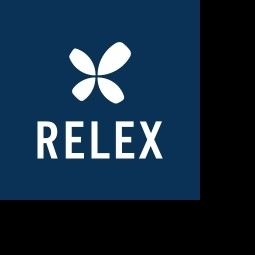Technology Category
- Analytics & Modeling - Machine Learning
- Sensors - Level Sensors
Applicable Industries
- Equipment & Machinery
- Retail
Applicable Functions
- Logistics & Transportation
- Sales & Marketing
Use Cases
- Demand Planning & Forecasting
- Inventory Management
Services
- Data Science Services
About The Customer
One Stop is a leading convenience store chain in the UK with over 900 company and franchise neighborhood stores across Great Britain. The retailer offers local communities a range of everyday household essentials, fresh produce, quick and easy lunchtime favorites, and dinner deals. Many One Stop stores also offer additional services including free cash machines, Post Office, PayPoint, lottery, and more. A subsidiary of Tesco, One Stop has been a RELEX customer since 2010, using its space and assortment solutions. In 2019, the retailer expanded their use of RELEX to include forecasting and replenishment solution in stores and distribution centers.
The Challenge
One Stop, a leading UK convenience store chain and a subsidiary of Tesco, faced challenges in managing the complexity of their product assortment. Their broad product offering ranged from ultra-fresh products with short spoiling times to more ambient inventory with longer shelf life. Demand for many products was sensitive to external factors such as weather, and sales for some products were easily cannibalized by promotions on similar items. These complex forecasting scenarios, in which multiple drivers could overlap and interact to impact demand, required a sophisticated solution. One Stop aimed to increase day-level forecast accuracy for products with demand driven by weather and cannibalization, and improve fresh product availability without seeing a corresponding rise in spoilage.
The Solution
One Stop turned to RELEX’s fully machine learning-based demand forecasting solution to manage their forecasting challenges. The AI-driven supply chain implementation allowed One Stop to process large amounts of information and extract weather-related demand factors from their historical sales data. By automatically applying these insights with local weather predictions to their demand forecasts, they were able to improve availability for weather-sensitive products. RELEX’s machine learning also helped One Stop manage their product cannibalization, contributing to more accurate forecasts for products whose demand is significantly impacted when prices for similar products change. Despite the increased sophistication and complexity of their planning tool, it remained easy to use and reduced manual work.
Operational Impact
Quantitative Benefit

Case Study missing?
Start adding your own!
Register with your work email and create a new case study profile for your business.
Related Case Studies.

Case Study
Smart Water Filtration Systems
Before working with Ayla Networks, Ozner was already using cloud connectivity to identify and solve water-filtration system malfunctions as well as to monitor filter cartridges for replacements.But, in June 2015, Ozner executives talked with Ayla about how the company might further improve its water systems with IoT technology. They liked what they heard from Ayla, but the executives needed to be sure that Ayla’s Agile IoT Platform provided the security and reliability Ozner required.

Case Study
IoT enabled Fleet Management with MindSphere
In view of growing competition, Gämmerler had a strong need to remain competitive via process optimization, reliability and gentle handling of printed products, even at highest press speeds. In addition, a digitalization initiative also included developing a key differentiation via data-driven services offers.

Case Study
Predictive Maintenance for Industrial Chillers
For global leaders in the industrial chiller manufacturing, reliability of the entire production process is of the utmost importance. Chillers are refrigeration systems that produce ice water to provide cooling for a process or industrial application. One of those leaders sought a way to respond to asset performance issues, even before they occur. The intelligence to guarantee maximum reliability of cooling devices is embedded (pre-alarming). A pre-alarming phase means that the cooling device still works, but symptoms may appear, telling manufacturers that a failure is likely to occur in the near future. Chillers who are not internet connected at that moment, provide little insight in this pre-alarming phase.

Case Study
Premium Appliance Producer Innovates with Internet of Everything
Sub-Zero faced the largest product launch in the company’s history:It wanted to launch 60 new products as scheduled while simultaneously opening a new “greenfield” production facility, yet still adhering to stringent quality requirements and manage issues from new supply-chain partners. A the same time, it wanted to increase staff productivity time and collaboration while reducing travel and costs.

Case Study
Integration of PLC with IoT for Bosch Rexroth
The application arises from the need to monitor and anticipate the problems of one or more machines managed by a PLC. These problems, often resulting from the accumulation over time of small discrepancies, require, when they occur, ex post technical operations maintenance.

Case Study
Robot Saves Money and Time for US Custom Molding Company
Injection Technology (Itech) is a custom molder for a variety of clients that require precision plastic parts for such products as electric meter covers, dental appliance cases and spools. With 95 employees operating 23 molding machines in a 30,000 square foot plant, Itech wanted to reduce man hours and increase efficiency.



